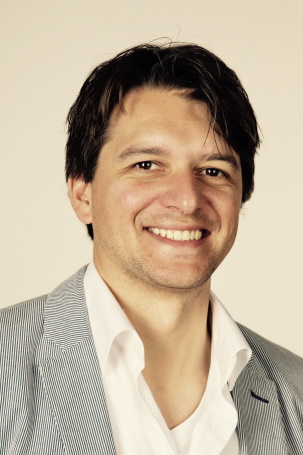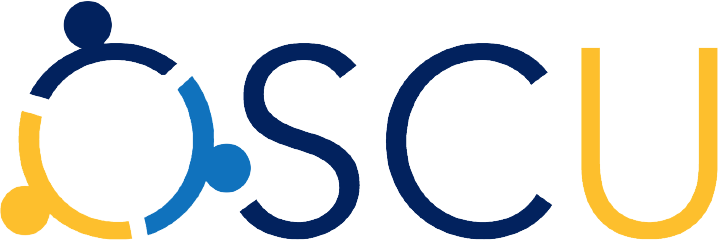News, Blog and Podcast
Introducing the OSCU Faculty Ambassadors: II. Sander van der Laan, UMC Utrecht

In the course of the next few months, we shall introduce the OSCU Faculty Ambassadors, so that OSCU members know whom to contact and what they can expect. Ambassadors are introduced through personal interviews. In this interview, we use the term Open Science in a manner which includes Open Scholarship.
Why did you decide to apply to become an Open Science Faculty Ambassador for the Open Science Community Utrecht?
Simply put: I thought, if I feel that Open Science is important and people should ‘do’ it, I might as well try to be part of the change too. So, I looked in the mirror and tried to be the change. In addition, it’s a totally different subject compared to the contents of my actual day-job; being an ambassador is a nice change of pace.
Why is Open Science relevant for your faculty? Which element do you think is most important?
A lot of the research is publicly funded and geared towards ‘fixing’ diseases and helping patients. I think we owe it to them to do our work transparently and make our work publicly available. This way we can ensure others can benefit from our work and build on it sooner rather than later. In the end, we might cut the time needed to move from ‘bench to bedside’.
In the medical (biology) field we need to pay special attention to the interests of patients, not only in terms of privacy, but especially in terms of their disease. Openly sharing data and results, especially with the stakeholders, i.e. patients, is important, but not without challenges. In the end, I think curing diseases and respecting privacy are not mutually exclusive; if anything, being transparent about how you handle data will only engage and motivate patients and result in more support. Lastly, Open Science is important in leveling out disparities: if science is openly shared, professionals in other (less economically strong) countries can also benefit.
Scientists are usually specialized in one or two fields. How will you represent and engage with your colleagues from different fields within the same faculty?
OSCU is open to anyone, so following that principle, any suggestions are welcome. And I’d like to take this opportunity, of being an ambassador and co-organizing the symposium, to give others within the faculty a platform to share their story.
You are organizing a symposium on Open Science for your faculty. What can we expect?
You can expect a symposium with a twist. It will have the regular OSCU Symposium format, but we want to give special attention to an important stakeholder: the patient. I think the patient deserves an active role in developing Open Science, especially in the medical (biology) field.
What will you do as an Ambassador, besides organizing a symposium?
I will fuel discussions with respect to data sharing. Data sharing is a noble concept, but how does it relate to GDPR (general data protection regulation)? How should we interpret the GDPR? What are the practical implications and implementations of the GDPR? In my experience, the consequence of the GDPR (and the local AVG here in the Netherlands) is that there is a tendency to over-interpret the rules and regulations, resulting in too strict implementations. I would like to discuss this, especially in light of Open Science. Also, what do the subjects, i.e. individual patients that contributed with their personal information to the data, think about openly sharing data?
These are subjects I’d like to focus on this year. Very practically this means, that as a showcase, I will try to get data I work with ‘out in the open’ by following all the guidelines put in place since the GDPR, and locally at our institution.
Some personal ambitions are to make a GitHub template which is geared at creating a reproducible project workflow for a particular type of analysis that I do for others. My idea is to share my experience creating this, to the people around me, hopefully showing them that it is easy if you try. I also developed an in silico practical in R Notebook, which I would like to rewrite to a GitBook so that others can benefit of it as well.
Which challenges do you expect to face in the road ahead?
For Open Science in general: not much, or at least that is my positivity talking, haha. I’d like to think that we are beyond the tipping point, that people who are still reluctant to join the force will become scarce. The whole grass-roots movement, like OSCU, or other initiatives like the bioRxiv and medRxiv preprint-servers (I am a medical biologist, so biased to those), and so many initiatives to reproducible science and data sharing practically possible are creating a paradigm shift. And all this is backed by policy changes at institutions, funders, and nationally through the Ministry. One example is the prerequisite, by decree of the Dutch and European parliament, that all publicly funded research needs to be published open access. However, we are not there yet: in absolute numbers, not everyone is ‘doing’ Open Science, while many say they really want to. So, we need to stay vigilant and keep putting Open Science on the agenda of policy makers, scientists (young and old), journals, boards of directors at institutions, and society. All the while also putting money where our mouth is, so helping to provide concrete tools for ‘doing’ Open Science.
At a local level, there will be some hurdles such as the ones as I described above. I think this is something we can work on locally and share our experiences. Taking small steps locally will move the needle for Science to Open Science.
Thank your for reading this blog entry. If you want to stay updated, do keep an eye on this website, the Open Science Community Utrecht newsletter and follow us on Twitter.

